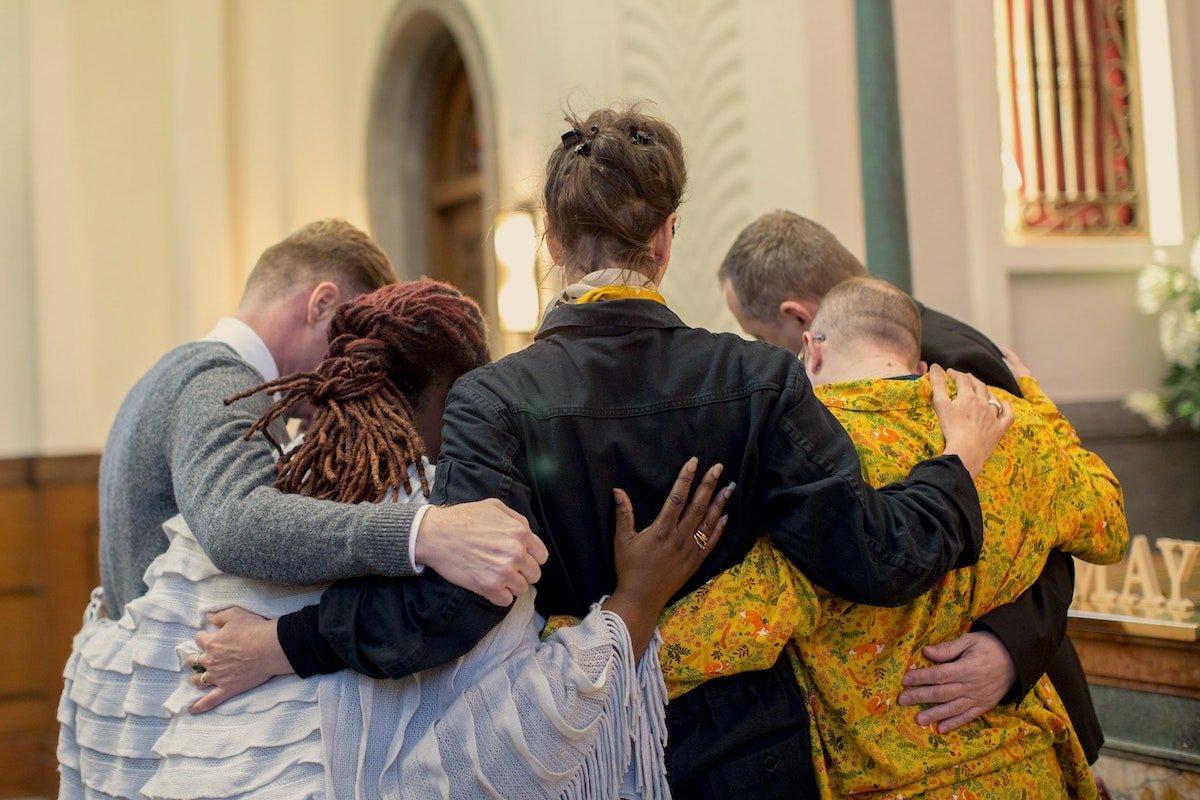What is Mindfulness and How Should Christians Relate?
The concept of mindfulness and meditation has become very popular in American culture and psychotherapy literature alike over the past few years. As a result, some Christians have also been expressing interest in the concept. How should church leaders think about it?
If you're interested in these questions, HBU's Gideon Institute is hosting an event for therapists and church leaders Sept 30th. Joshua J. Knabb—one of the most prolific authors and productive researchers in Christian psychotherapy and counseling today—will be in Houston to discuss Christian flourishing, and how it differs from contemporary alternatives, and to train therapists and laypeople in the practice of distinctly Christian, evidence-based kinds of meditation.
What is Mindfulness?
First, what is mindfulness? Bishop, et al., (2004) have described it in the following way:
“The first component involves the self-regulation of attention so that it is maintained on immediate experience, thereby allowing for increased recognition of mental events in the present moment. The second component involves adopting a particular orientation toward one’s experiences in the present moment, an orientation that is characterized by curiosity, openness, and acceptance.” (p. 232)
The therapeutic value of this mental practice has been well documented, along with many other closely related concepts that are also aspects of self-regulation, and many psychologists consider self-regulation to be an important component of mature human life as well as a means and a positive outcome of good therapy. In Foundations for Soul Care (2007) I asserted that training people in dipolar self-regulation (in dependence on God) is an essential aspect of Christian soul care (i.e., psychotherapy, counseling, and spiritual direction). But what about mindfulness?
How Should Christians Relate?
Is mindfulness simply a worldview-neutral concept? I don’t think so, since it is widely acknowledged that mindfulness derives from Buddhism. “Right mindfulness” is the 7th noble truth of the Eight-Fold Path of Buddhism. This fact should give Christians pause about whether they ought to employ the term and concept.
Let me begin by stating clearly that I don’t think Christians have to use a completely different soul-healing vocabulary, for example, only using words found in the Bible. God has so ordered human life that it is necessary for humans to share a common vocabulary about most of life, so we should not think that it is somehow necessarily better to always use different terminology.
Influenced by MacIntyre (1990), I have argued (2007) that most of the time Christian psychologists should just utilize scientific vocabulary coined by other responsible scientists (what MacIntyre called same-saying and transliteration), especially when they are describing aspects of the created order.
However, I also wrote that the meaning of some words/concepts is so tainted by assumptions of another worldview that Christians need to come up with another term (what MacIntyre called substitution). I think mindfulness is one of those terms.
Why does it matter?
First, we should care because we are talking about the healing of the soul (psychotherapy), and not simply created aspects of human nature. Christianity has a very unique Christ-centered model of soul-healing. Therefore, Christians need to be especially careful about borrowing terms from other soul-healing systems of thought and practice based on an alternative worldview.
Second, because we already have some excellent, centuries-old, analogous Christian terms, like “self-examination,” “inwardness,” “transparency,” “contemplation,” “detachment,” “watchfulness,” and “surrender.” So it is not like we have to borrow some other terms to label aspects of inwardness and specific therapeutic activities.
Terminology Matters
What might be some advantages of using Christian terms in soul care when we have them?
Part of the nature of therapeutic discourse defines who we are and so helps to constitute our identity. When counseling Christians, it is generally better to use terms that help to constitute a Christian identity.
Very practically, it promotes greater value congruence between Christian counselors and their counselees.
Christians have a rich soul-care heritage. It is important that we invest ourselves in that heritage as we seek to help people towards comprehensive healing in Christ. Some Christians seem so eager to look outside our own tradition when we already possess tremendous underutilized soul-care resources given to us by God.
Using the term “mindfulness” may raise questions in the broader Christian community and legitimize suspicions about Christian psychotherapy and counseling.
There is also the apologetic value of demonstrating to the broader Western community the resourcefulness and value of Christian soul-healing.
But can’t we at least consider the concept of “mindfulness” to be worldview neutral, since it is simply the activity of being aware of one’s inner world? I don’t think so. The focus of one’s attention in mindfulness is very typically Buddhist and so devoid of moral and spiritual discrimination: “openness and acceptance of one’s inner world.”
However, Christians have a more complex task. We are to be open to all that’s going on within: our God-given goodness as well as our sin and brokenness. Because of our union with Christ, we can be honestly introspective, knowing some of what we find there will be sinful. Christians need not be afraid of that darkness we find, because Christ has died for all our sin and cleansed us from all our shame and guilt.
But part of our self-examination will involve repentance and putting some of what we find to death (Col 3:5). How Christians can do that requires more space than we have here, but the point here is that the concept of mindfulness imports more worldview baggage than one might think at first glance.
Christian Distinctives of Self-Examination
In contrast to the secular concept of mindfulness of Buddhism (and contemporary models of naturalistic therapy), Christian self-examination has some real distinctives.
1) It is fundamentally relational.
Whereas secular mindfulness is a solitary practice done by and with oneself, Christian self-examination is prayerful and radically dependent upon the Holy Spirit. Our God is our soul-shepherd, who loves us and wants to help us to get to know ourselves and gain healing through all that he has done on our behalf. We examine ourselves with him present within (by the indwelling Holy Spirit), relying on his help and counsel.
2) Christian self-examination is also shaped by Scripture.
Christians have known for millennia that reading Scripture prayerfully and meditatively is a key way that God opens up the soul and brings in healing.
3) Acceptance is not the same as crucifixion and resurrection.
There is supposed to be a mediating cognitive/affective transformation.
Both aspects are brought out in Heb 4:12-13: “The word of God is living and active and sharper than any two-edged sword, and piercing as far as the division of soul and spirit…and able to judge the thoughts and intentions of the heart. And there is no creature hidden from His sight, but all things are open and laid bare to the eyes of Him with whom we have to do.”
Secular mindfulness rightly points people to the value of becoming more aware of their internal world—a very important soul-care skill. We Christian counselors can do a better job of reclaiming our own heritage and training those we counsel how to work on their souls in relationship with the triune God and in the light of Scripture.
Eric L. Johnson, PhD, is Professor of Christian Psychology and Director of the Gideon Institute at Houston Baptist University. He taught psychology and worldview studies for 10 years at University of Northwestern and counseling for 17 years at Southern Baptist Theological Seminary. He was the first director of the Society for Christian Psychology and has been doing pastoral counseling weekly for over 20 years. He’s married to Rebekah, and they have two children and three grandchildren.
References
Bishop, S. R., Lau, M., Shapiro, S., Carlson, L., Anderson, N. D., Carmody, J., Segal, J.V., Abbey, S., Speca, M., Velting, D., & Devins, G. (2004). “Mindfulness: A proposed operational definition.” Clinical Psychology: Science & Practice, 11 (3), 230–241.
Johnson, E. L. (2007). Foundations for Soul Care: A Christian Psychology Proposal. Downers Grove, IL: InterVarsity.
MacIntyre, A. (1990). Whose justice? Which rationality? South Bend, IN: University of Notre Dame Press.
A version of this article originally posted on The Institute for Christian Psychology.
We’ll send one succinct weekly email
with the best news, events, and info
for churches in the Houston area.
Photo by Lesly Juarez on Unsplash










What are the warning signs of burnout and what can ministers do to recover from or prevent it altogether?